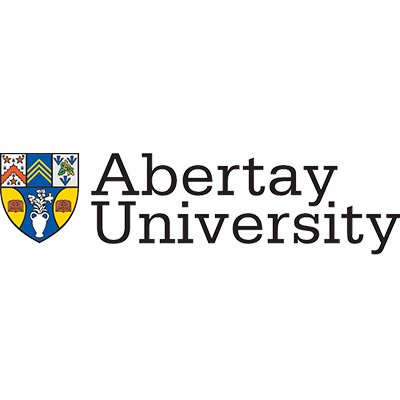Programs

Marketing Management
Have you ever dreamed of starting your own, successful company? Do you consider yourself a natural team leader and wish to hone this skill? Did you ever want to learn how to use data to make decisions? Do you want to work in a business environment? If any of the above questions are about you, then strongly consider Global Business and Modern Marketing for your bachelor studies. This course is built to prepare future global business leaders. During 3 year studies, our lecturers will prepare you to read, analyse and draw conclusions from business data, crucial to making sound business decisions. You will receive a world-class education which will allow you to work in business management of any field. This will be possible by giving you the skills to read and comprehend any data of finance, marketing, human resources and so on. Study in Vilnius, a hub of modern companies and your future potential employers. Make your business studies more than just about one discipline. Gain understanding of business psychology, budget management, digital marketing, project management, economics and so much more. MRU is probably the best university in preparing you to become a business leader in the global environment. Take your studies in English and become a truly international business leader. Don’t miss a chance to study abroad, where you can improve your English or secondary language skills even more. To take full advantage of this study program, you will be required to know English at B1 level. Study in Europe, in one of the universities of your choice with Erasmus+ study programmes. Upon graduating, you will be awarded your bachelor degree in the field of business management, and 180 ECTS points for future studies. MRU offers low tuition fees that are affordable to all aspiring business leaders. There are scholarships available for many students and more information on that can be found here. We also provide help with visas and residence permits for all international students. Check out more information about Global Business and Modern Marketing below and decide if this program is best for you. Contact us if you have more questions. If not, hit that Apply now button and get your degree started!
Starts 01 Jun
Law
Global challenges, like cyberattacks, money laundering, human rights violations and terrorism are on the rise. People’s lives are affected by global and national insecurity. Law plays an increasingly important role in addressing the dangers caused by global challenges. This programme focusses on the use of law in personal, national, and global security. It teaches students how to fact find, conduct research, strategically negotiate and lead when it comes to addressing international security matters. It looks at how the world has been changed by geopolitics, the pandemic, rising energy and food prices and technology, and how the law can be used to resolve these issues. Students are provided with a dynamic environment in which to learn, with the programme making use of lectures, seminars, mooting, gamification, talks, experts, and other methods. Students will also learn about professionalism, strategy, independence, resilience, and strong leadership. This programme is aimed at training future lawyers and other participants on how to effectively use the law when it comes to contemporary matters of global security. The programme is oriented towards: Providing students with the skills needed to apply the law to issues of global security, including legal research and case strategy; Looking at how global and national institutions can be used to address key global security concerns; Training on skills that can be applied or transferred across a number of different occupations; Examining contemporary matters of global concern to people across the world, using experiential methods; Working with international partner organisations to provide students with the opportunities to look at global security issues in context Upon completion of your studies, you will be able to analyse evidence, conduct legal research, use the law, including in advocacy and negotiation, apply case strategy and demonstrate leadership. The programme aims to expand your career opportunities, grow your global network, and help you obtain vital legal and soft skills, such as teamwork, time management and creative problem solving. The programme is composed of 210 ECTS in three groups of subjects: global security, international and domestic law, and legal and other competencies. The full list of compulsory and optional courses is below. Specialists in law and global security are in demand across the world. Institutions such as the United Nations, the European Union, the Organization for European Economic Cooperation, NATO, and others require people who have strong legal skills in the international environment. Graduates of this programme can look widely for roles in international and national institutions, dealing with national and global security issues, both in the public and private sectors, especially those concerned with human rights, compliance, anti-money laundering issues, energy and other forms of security. The programme is conducted in English. To take full advantage of this programme, you need to know English at B2 level. You can also learn from our partners. We provide opportunities to network with programme partners from national and international organisations and companies. Lithuania has a strong heritage and culture, and is a green, coastal environment. The University has a strong social science background and is among 301-400 most impactful universities according to “Times Higher Education” Impact ranking 2022. MRU Law School is among 250 best law schools in the QS World Rankings. For more information on the Law and Global Security programme, please see below and join us for an exciting and global opportunity. Contact us if you have more questions. If not, hit that Apply now button and get your programme started.
Starts 01 Jun
Anthropology
Do you feel the need to help people around you? Do you like spending time with the elderly? Do you enjoy watching over children? Do you like standing up for those that cannot stand up for themselves? If you feel positive about any of the above questions, consider choosing Social Work and Human Rights for your bachelor degree. These are studies that will set you down the path of helping others. You will learn to work with children and the protections they must be provided in the eyes of the law. You will learn how to provide crisis management and how to work with people in correctional institutions. You will find out how social programs are built, ran and apply to the social groups in need. From all our study programmes, the social work bachelor studies are the most down to earth option. It requires a lot of empathy and dedication. Taking your studies in English will also help you reach higher level of social care. You will be able to participate in Erasmus+ program and study in Europe as an exchange student, expanding your knowledge of social care practices in other countries. To take full advantage of these studies, you must wield English language at least at B1 level. If you are struggling to choose where to study social work, choose to study in Lithuania. Here you will receive a 4-year, world-class education from what may be the best university in the country. Upon graduating in the field of social work, you will receive a bachelor degree and 240 ECTS credits for future studies. At MRU we strive to provide truly affordable studies. We have scholarships available for many students and more information on that can be found here. We also provide help with visas and residence permits for all international students. Check out our Social Work and Human Rights lecture content below and decide if this program is best for you. Contact us if you have more questions. If not, hit that Apply now button and get your degree started!
Starts 01 JunAccredited Universities
Things You Need To
Know To Study Abroad
What is A-level
Advanced level qualifications (known as A levels) are subject-based qualifications that can lead to university, further study, training, or work. You can normally study three or more A levels over two years. They’re usually assessed by a series of examinations.
A levels are advanced qualifications in the UK that students take after their GCSEs. They are widely accepted by universities and colleges as entry qualifications and are usually taken by 16-19-year-old students to pursue higher education. A levels let students focus on specific subjects and can help them prepare for their desired career or field of study.
When choosing A level subjects, consider your interests and passions, as studying subjects you enjoy can make learning more enjoyable. Research future career requirements, as some fields may have specific A level subject preferences. Assess your strengths and abilities in different subjects and choose those you excel in. Aim for a balance and diversity of subjects to keep your options open. Seek advice from teachers and career advisors who can provide insights. Remember to thoroughly research and consider your choices, as they can impact your future path.
After A levels, you have several options
- University: A levels can be used as qualifications for undergraduate programs by meeting grade requirements.
- Gap Year: Take a break to explore interests, travel, gain work experience, or prepare for university through volunteering, internships, or personal development.
- Apprenticeships: Combine on-the-job training with academic study in apprenticeship programs to gain practical skills and industry-specific qualifications.
- College or Vocational Training: Enroll in hands-on programs at colleges or vocational training institutions for qualifications in sectors like healthcare, engineering, beauty, hospitality, etc.
- Employment: Consider entry-level jobs related to your career choice, but note that higher-level positions or specific professions may require further education or professional qualifications.
- Research and explore options based on your strengths, interests, and long-term goals. Seek guidance from career advisors, teachers, and professionals for informed decision-making.
What is IB (International Baccalaureate)
The International Baccalaureate (IB) is a global leader in international education—developing inquiring, knowledgeable, confident, and caring young people. Our programmes empower school-aged students to take ownership in their own learning and help them develop future-ready skills to make a difference and thrive in a world that changes fast.
The International Baccalaureate (IB) Diploma Programme has varying grade requirements for entry, depending on the school or institution. Admission criteria, including grade requirements, are set by schools offering the IB programme. Generally, schools may consider previous academic achievements, such as GCSEs or equivalent qualifications, when determining entry requirements. It is important to check the specific entry requirements of the IB Diploma Programme at your desired school or institution to understand the grades you need to meet for acceptance.
- The International Baccalaureate (IB) program is comprehensive and rigorous, targeting students aged 16 to 19.
- It provides a high-quality international education, preparing students for higher education and beyond.
- The program is suitable for academically motivated, globally minded, and well-rounded students.
- It emphasizes critical thinking, research skills, intercultural understanding, and the development of various skills and attributes.
- Many students choose the IB program to pursue university education as it is widely recognized and accepted worldwide.
- Personal interests, goals, and abilities should be considered before deciding whether the IB program is the right fit.
- Researching the program, seeking advice from teachers and counselors, and reflecting on personal strengths and aspirations are recommended steps for decision-making.
When selecting IB subjects, consider:
- Choose subjects aligning with your interests for an engaging learning experience.
- Research university program requirements and ensure chosen subjects fulfill them.
- Consider subjects relevant to your desired career path and admission or employment requirements.
- Aim for a balanced combination of subjects from different groups for a well-rounded education.
- Consider your strengths and abilities in different subjects and prioritize those in which you excel.
- Plan subjects to integrate with Extended Essay and Theory of Knowledge courses.
- Seek guidance from teachers, subject advisors, and IB coordinators for insights and recommendations.
- Remember to select subjects that challenge and allow you to excel within the demanding IB curriculum.
After completing the IB program, you have several options:
University: The IB Diploma is widely recognized and accepted by universities worldwide. You can apply to undergraduate programs based on your IB results.
Gap Year: You may choose to take a gap year to explore other interests, gain work experience, or engage in personal development activities before pursuing higher education.
Apprenticeships or Vocational Training: If you prefer a more practical approach
What is AP (Advance Placement)
The Advanced Placement (AP) Programme was first introduced in 1955. The examination is developed and administered by the College Board. High school students have the opportunity to participate in the AP programme and earn college credits in advance. Demonstrating college preparedness through AP tests helps students gain admission to their preferred colleges and may exempt them from certain introductory college courses. The examination is conducted worldwide once a year.
- The AP examination grants college credit, which saves students time and money.
- It showcases students’ ability to handle college-level work and impresses admissions officers.
- AP courses are challenging and improve critical thinking and problem-solving abilities.
- They foster a comprehensive understanding of subjects, benefiting future studies.
- AP courses promote personal growth through curiosity and discussions.
- Success in AP courses elevates high school GPAs, enhancing college admissions prospects.
- AP courses distinguish students and increase competitiveness for scholarships and job opportunities.
- They offer the opportunity to explore various disciplines and discover personal interests.
- AP courses prepare students for the rigors of college-level coursework.
- They develop advanced skills that contribute to success in education and careers.
- The AP examination grants college credit, which saves students time and money.
- It showcases students’ ability to handle college-level work and impresses admissions officers.
- AP courses are challenging and improve critical thinking and problem-solving abilities.
- They foster a comprehensive understanding of subjects, benefiting future studies.
- AP courses promote personal growth through curiosity and discussions.
- Success in AP courses elevates high school GPAs, enhancing college admissions prospects.
- AP courses distinguish students and increase competitiveness for scholarships and job opportunities.
- They offer the opportunity to explore various disciplines and discover personal interests.
- AP courses prepare students for the rigors of college-level coursework.
- They develop advanced skills that contribute to success in education and careers.
The College Board offers a wide range of Advanced Placement (AP) courses across various subject areas. Some of the AP courses available include:
- AP Biology
- AP Calculus AB
- AP Calculus BC
- AP Chemistry
- AP Computer Science A
- AP Computer Science Principles
- AP Economics (Microeconomics and Macroeconomics)
- AP English Language and Composition
- AP English Literature and Composition
- AP Environmental Science
- AP European History
- AP French Language and Culture
- AP German Language and Culture
- AP Government and Politics (Comparative Government and U.S. Government and Politics)
- AP Human Geography
- AP Italian Language and Culture
- AP Japanese Language and Culture
- AP Latin
- AP Macroeconomics
- AP Microeconomics
- AP Music Theory
- AP Physics 1: Algebra-Based
- AP Physics 2: Algebra-Based
- AP Physics C: Electricity and Magnetism
- AP Physics C: Mechanics
- AP Psychology
- AP Research
- AP Seminar
- AP Spanish Language and Culture
- AP Spanish Literature and Culture
- AP Statistics
- AP Studio Art (2-D, 3-D, and Drawing)
- AP United States History
- AP World History
- AP World History: Modern
This is not an exhaustive list, and there may be additional AP courses offered in specific schools or regions. It’s recommended to check with your school’s AP coordinator or the College Board for the complete list of AP courses available to you.
- Certain AP exams require additional or special preparation due to their content or format.
- AP Physics C demands a strong understanding of calculus and physics principles, with extensive problem-solving practice.
- AP Chemistry covers diverse topics and requires a solid foundation in chemistry concepts and math skills.
- AP Calculus BC encompasses comprehensive content, necessitating extra time for reviewing and practicing calculus.
- AP Biology requires deep understanding, memorization, lab work, and data analysis.
- AP Studio Art assesses artistic skills through portfolio submissions, requiring experimentation and mastery in various aspects.
- AP Music Theory tests knowledge in music theory, including notation, composition, aural skills, and analysis.
- Individual student backgrounds, strengths, and study habits influence the level of preparation required for each exam.
- Students should consult teachers, utilize study resources, and allocate sufficient time for effective exam preparation.
AP exam scores, ranging from 1 to 5, are determined by the College Board, the administering body for AP exams. These scores indicate a student’s level of achievement and understanding in the respective subject.
Here is a breakdown of the score scale and what they typically represent:
- A score of 5 indicates mastery and high qualification in the subject.
- A score of 4 signifies a solid understanding with minor weaknesses.
- A score of 3 represents an adequate understanding with some knowledge gaps.
- A score of 2 suggests limited understanding and a need for significant improvement.
- A score of 1 indicates insufficient performance for college credit or advanced placement.
- In Egypt
- Alexandria House of English
- Bedayia International School
- Cairo American College
- Cairo Modern School
- Capital International Schools American School
- Dar El Tarbiah Language School-American Division
- Egyptian American School
- El Alsson British and American International School
- Forsan American International School
- Genesis International Schools
- International School of Choueifat – City of 6 October
- International School of Choueifat Cairo
- International School of Egypt
- International School Of Elite Education
- Metropolitan School
- Modern Education American School
- Modern English School Cairo
- Narmer American College
- New Generation International Schools
- Riada American School
- In Iraq
- British International Schools In Kurdistan Bisk
- Classical School Of The Medes – Duhok
- Classical School Of The Medes – Erbil
- Classical School Of The Medes – Sulaymaniyah
- International School of Choueifat – Erbil
- International School of Choueifat Sulaimani
- Mar Qardakh School
- Ronaki International School – Erbil
- United Science International School.
Exams required for studying abroad
The most important entrance exams for studying abroad include IELTS, GRE, TOEFL, SAT, GMAT, Duolingo, PTE, MCAT, and LSAT. These exams assess language and technical skills, and students must submit their minimum scores before their validity expires. IELTS validates English skills, while GMAT demonstrates business and management studies aptitude.
Countries Where You Can Get a
University Education Abroad

Spain

Denmark



